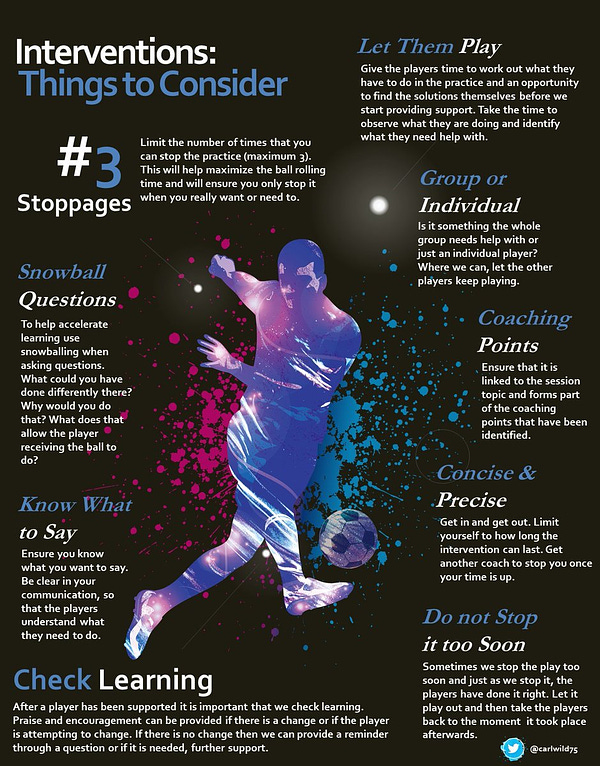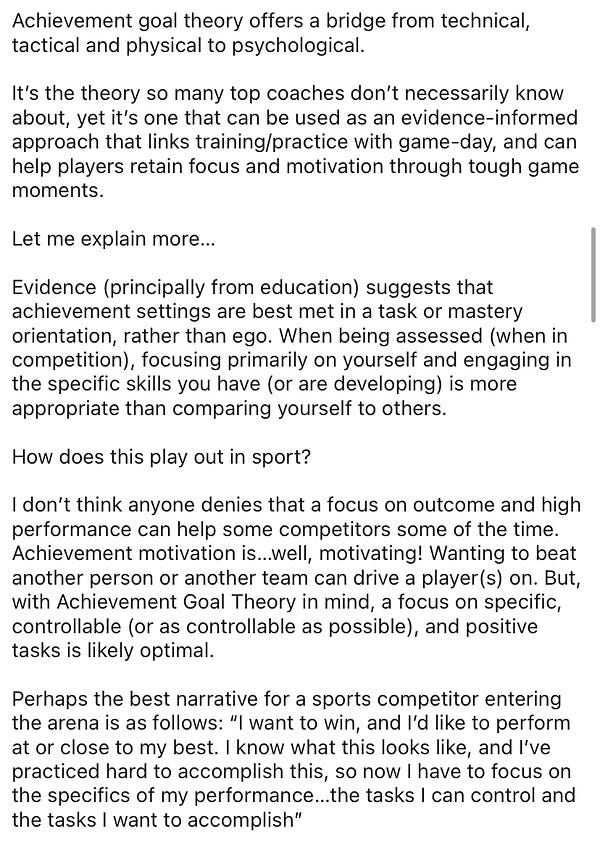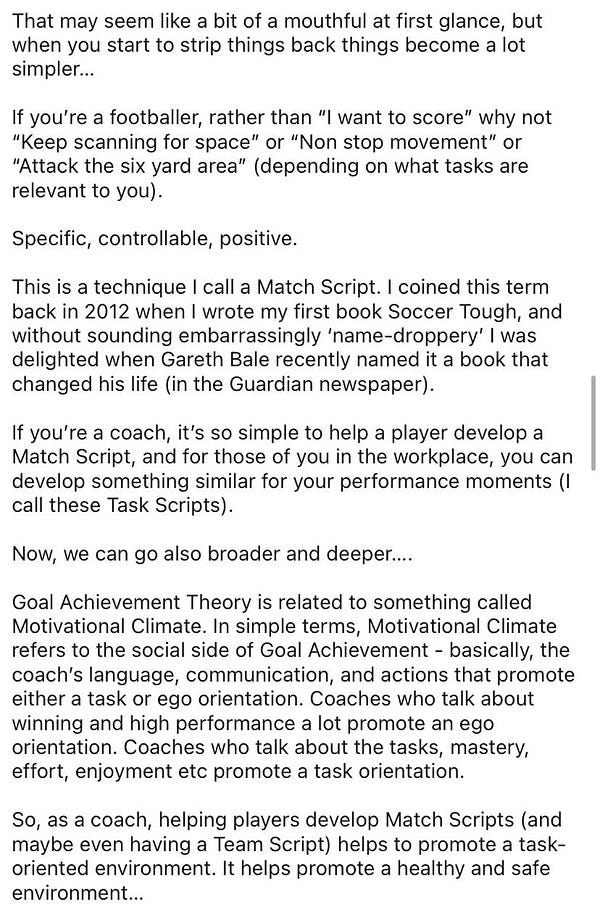Should training be harder than the game?
Hi everyone, welcome to another edition of the Coach Insight Newsletter! I hope you’ve all had a good week and looking forward to the weekend games ahead. I went to see Man United vs West ham in the Premier League a couple of weeks back and two players stood out for me. Declan Rice, I had my doubts about his offensive side of the game but he seems to be developing that side really well. The other was Mason Greenwood, whilst he didn’t have an amazing highlight reel, his ability to drift past players is amazing up close. He really only has 3 moves drop one shoulder, drop one then another, or the stepovers but it seems really hard for defenders to stop him, I’m sure the fact he’s comfortable with both feet plays a major factor as a defender cannot overly anticipate his movement. In the game my feeling was both sides needed a ball playing 6 to make the most of their possession and it got me thinking, do we as coaches do enough to allow our skilled technical players to play that position and influence the game from the base of midfield? I’m not sure that’s the case in England, number 10’s or out wide is where I think we usually place them. Something to think about anyway. Right on to the top 10….
The Top Ten Of The Week
This article has been doing the rounds between coaches on Twitter. It's the Guardian article looking into the book created on Thomas Tuchel. There are some really interesting quotes and I think I may well buy the book. The most interesting is the concept that training will always be more complex than the game. Tuchel deos this on purpose. Do you do this purposefully, create extra complex situations (relative to level) that make game day seem so much easier?
How do you feel about this quote from Lisa Barrett? Have you thought of making sure your players are trained in their words and concepts? It's something we may do subconsciously when we tell players not to be negative after a mistake but can we do more?
What do you think of this from Matt Gordan? I know this is closely tied to his principles of play but can you translate your own principles into easy to understand language and graphics?
I saw this thread on Twitter and it piqued my interest. Do we call for professionalism in coaching to coach at the expense of fun and the joy of playing the game? I understand for those that are seriously talented, who may need ot be tested in a higher way, this will be of benefit but for most, that won't be the case, and are we doing enough (everyone not just coaches) to create an environment that will create long-lasting positive memories?
This article from the England Football Learning team goes through their most skillful players from Euro2020. Who made their mark for you and why? do you think we develop those types of players?
https://thebootroom.thefa.com/resources/coaching/skilful-players---euro-2020
Really interesting development happening at lots of forward-thinking clubs these days around Individual development plans. Here The Training Ground Guru team talk to Leigh Bromby, Huddersfield's director of football operations, on how they apply them to the whole club, including the first team. Do you sit down with players and go through an individual development plan?
Nice infographic from carl Ward here on what to consider when making your coaching interventions. Do you have anything else to add that he may have missed?
I like this infographic from Eric Laurie because it can be applied to both attacking and defending.
Daniel Abrahams going through achievement goal theory. a short overview into how it works within sport and the players
Nice thread on different ways to develop athleticism in youth players. Any of these surprising to you?
Thanks again for joining us. We hope you have a great weekend and week. As always if you think someone would enjoy our newletter please do share using the buttons below.













